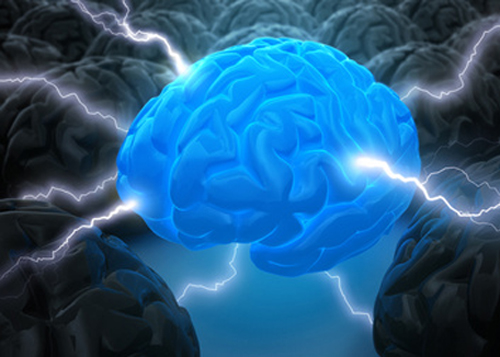Focal cortical dysplasia is caused by areas of the brain that have developed abnormally and is among the most common causes of drug-resistant epilepsy in children. It frequently occurs in the frontal lobes, which are important for planning and decision-making. Epilepsy in focal cortical dysplasia is associated with comorbidities, including learning disabilities. UCL Queen Square Institute of Neurology researchers sought to find an alternative to surgery for children with focal cortical dysplasia and say they have developed a new gene therapy that they report can significantly reduce seizures in mice.
The findings are published in Brain in an article titled, “Anti-seizure Gene Therapy for Focal Cortical Dysplasia.”
“Focal cortical dysplasias are a common subtype of malformation of cortical development, which frequently presents with a spectrum of cognitive and behavioral abnormalities as well as pharmacoresistant epilepsy,” the researchers wrote. “Focal cortical dysplasia type II is typically caused by somatic mutations resulting in mammalian target of rapamycin (mTOR) hyperactivity, and is the commonest pathology found in children undergoing epilepsy surgery. However, surgical resection does not always result in seizure freedom, and is often precluded by proximity to eloquent brain regions. Gene therapy is a promising potential alternative treatment and may be appropriate in cases that represent an unacceptable surgical risk. Here, we evaluated a gene therapy based on overexpression of the Kv1.1 potassium channel in a mouse model of frontal lobe focal cortical dysplasia.”
Although surgery to remove the affected brain malformation is effective, its use is severely limited by the risk of permanent neurological deficit and does not always result in seizure freedom.
Consequently, researchers at the UCL Queen Square Institute of Neurology evaluated a gene therapy based on the overexpression of a potassium channel that regulates neuronal excitability in a mouse model of focal cortical dysplasia in the frontal lobe.
Potassium channels control the movement of potassium ions in and out of cells. When there is an overexpression of a potassium channel, it means that there is greater regulation, resulting in the decrease of the activity of cells and, in turn, stopping seizures.
Co-corresponding author, Gabriele Lignani, PhD, professor, UCL Queen Square Institute of Neurology, said: “It is very exciting to see that this new gene therapy could potentially be used as an effective alternative to surgery in patients with focal cortical dysplasia.”
Gene therapies have previously been shown to work in another form of epilepsy where seizures arise in the temporal lobes, but have not been tested in focal cortical dysplasia.
For this study, researchers introduced an engineered potassium channel gene called EKC into the affected frontal lobe of the epileptic mice. For added safety, they used a virus that is unable to replicate in order to carry the potassium channel gene.
Before giving the treatment, researchers monitored the mice’s brain activity for 15 days. They then injected either the virus carrying the EKC gene or a control virus into the affected brain area. The team then monitored the mice’s brain activity for another 15 days. The researchers found that the gene therapy reduced seizures by an average of 87% when compared with the control group, without affecting the mouse’s memory or behavior.
Lead author Vincent Magloire, PhD, senior research fellow at UCL Queen Square Institute of Neurology, said: “Following the successful study in mice, we believe the treatment is suitable for clinical translation, and, taking into account the size of the unmet need, it could be deployed to thousands of children who are currently severely affected by uncontrolled seizures.”
Co-corresponding author, Dimitri Kullmann, PhD, professor, UCL Queen Square Institute of Neurology, added: “Plans for a first-in-human clinical trial are underway and are planned in the next five years.”

Rohit Malhotra is a medical expert and health journalist who offers evidence-based advice on fitness, nutrition, and mental well-being. His articles aim to help readers lead healthier lives.


